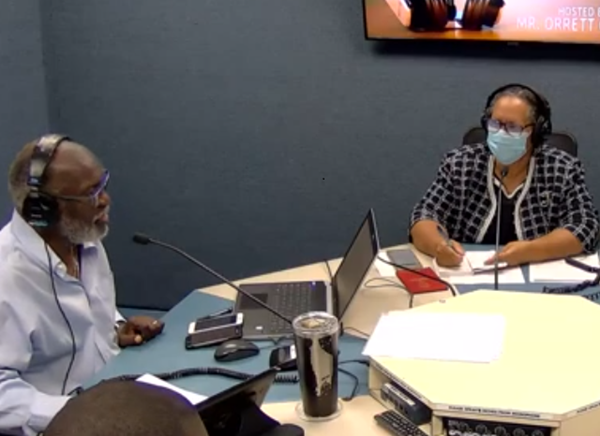[ad_1]

(CNS): The new premier, Juliana O’Connor-Connolly, has said that parliament has been under external “remote control” from those with economic and financial influence and that it was “time for change” under the newly formed United People’s Movement. Implying that previous leaders were being controlled by external forces, the premier said she expected to be bullied and threatened, but MPs should be loyal to the voters, not parties or individuals.
In her first public appearance as the new leader of the UPM on Radio Cayman Monday, O’Connor-Connolly gave her version of the events that led to the departure last week of the former premier and climate minister, Wayne Panton, and the return of McKeeva Bush and Dwayne Seymour to the government benches. O’Connor-Connolly said that she had nothing to lose and owed no obligation to anyone except to the people of the Cayman Islands, and especially Cayman Brac East.
“You will never see a ‘for sale’ sign on me,” she told the listening audience, adding that no one could call her to make her vote one way or another.
It has been no secret that Panton was under pressure from the developer class and donors who had contributed to several of his ministers’ campaigns and were seeking payback. Since day one of his administration, Panton had been battling with his Cabinet and Caucus and powerbrokers in the private sector behind some of his ministers to steer his sustainable agenda through, as many of them had opposed it.
These external efforts were not new. They started around a decade ago when the developer lobby tried to prevent Panton from steering the National Conservation Law through parliament, and have continued, reflected more recently in the efforts to fight the need for an environmental impact assessment for the East-West Arterial Road extension.
O’Connor-Connolly did not explain how she was going to handle those external forces, which will still be influencing her new government when caucus meets for the first time next week, nor did she say how she would prevent those who have “remote control” over ministers and MPs, swaying their votes, as she accepted that not everyone would be happy.
She said that she would no longer allow members of caucus to bully civil servants but did not indicate which MPs were guilty of doing so.
As she outlined how she became premier and the formation of the new government, O’Connor-Connolly said that PACT was faced with several options after the no-confidence motion had failed in parliament. The motion had seen both O’Connor-Connolly and André Ebanks abstain on the vote, leaving Panton in an untenable position as leader with a hung parliament. She said that of the choices before them, she had ruled out a new election. Despite the rising public support for a new national poll, she said it was an easy decision as they had to complete a budget before 31 December.
O’Connor-Connolly said that she was asked to be leader unanimously, otherwise she would not have taken the job. She had wanted Ebanks as her deputy and to allow him to continue on his work dealing with the financial services sector and the international stage.
The premier said she had invited back former PACT members Bush and Seymour because if PACT was to reform, it would need the numbers to address the hung parliament. She noted that while Chris Saunders was at the first meeting following the adjournment of parliament, he choose not to join the new government; he will support it but remain outside.
O’Connor-Connolly said Panton had agreed to step down and out of Cabinet but she revealed that he had blocked the UPM’s original decision to give Seymour the environment portfolio. As a result, they had asked Kathy Ebanks-Wilks to take on the former premier’s ministerial portfolio of sustainability and climate resiliency.
At the time of her appearance she was still unaware whether or not Panton was going to accept the speaker’s job. She did reveal that there was an alternative option, but did not say what that was. With Panton making the decision to take to the back-benches, where he can retain his voice and advocate for the environment, the premier will, no doubt, soon reveal what the UPM intends to do about the position of speaker, which could go to one of her backbenchers, to an external appointee, or even a member of the opposition.
See JOCC’s first appearance on Radio Cayman as the leader of the UPM government and premier below:
[ad_2]
Source link

